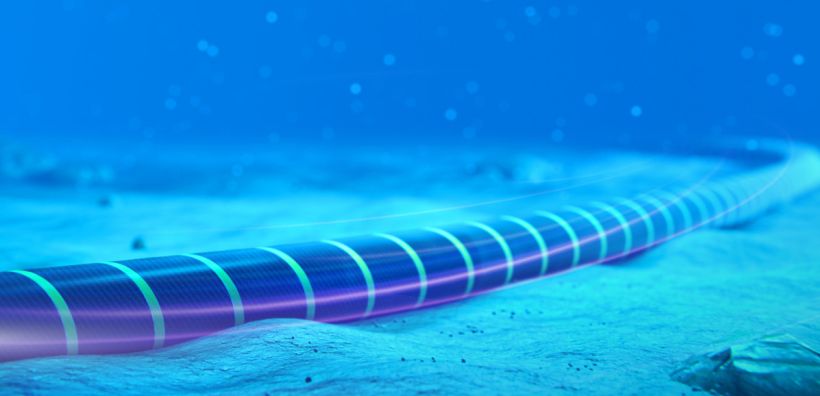A prospective Greek-Egyptian subsea grid interconnection, planned to exclusively transmit green energy from Egypt to Greece as a means of increasing the energy-mix share of renewables in Greece and the wider region, while also bolstering energy security in Europe, has gained further ground on a number of key fronts.
Political support has been expressed, progress is being achieved on the project’s engineering study, and the Copelouzos group, seeking to develop the project, is in talks with potential investors.
As for the technical side, agreements are being worked on for a detailed engineering study as well as a feasibility study for the project, whose cable installation will reach as deep as 2.7 kilometers at certain sections.
A Copelouzos group team headed by its president, Dimitris Copelouzos, has held talks in Cairo with Egyptian president Abdel Fattah El-Sisi and other leading Egyptian officials on regions where wind and solar farms could be developed to feed the Greek-Egyptian subsea cable.
The focus of these talks, also involving Egypt’s minister of electricity and renewable energy Dr. Mohamed Shaker El-Markabi, was on developing wind energy facilities in areas offering wind speeds of more than 10 meters per second. Such speeds are exceptional, well over those of locations hosting Greece’s best-performing wind energy facilities, where wind speeds reach 6.5 to 7 meters per second.
As for the solar energy sector, production tariffs of between 15 and 17 dollars per MWh offered at previous auctions in Egypt, a country offering flat land, are extremely competitive compared to prices in the Greek and Italian markets, even if energy transportation costs to Europe are taken into account.
Solar and wind energy investments offering a total capacity of 9.5 GW are planned to be developed in Egypt by the Copelouzos group, with partners, at a cost of approximately 8 billion euros. European, US, Middle East and Japanese companies have expressed interest to join the Copelouzos group for these projects.
Though investor interest for the Greek-Egyptian grid interconnection is strong, the European Commission’s stance will be crucial as it will be called upon to decide on the project’s inclusion in the projects of common and mutual interest (PCI/PMI) list, which would ensure EU funding support.
The Copelouzos group submitted its application last December. Brussels is expected to release PCI/PMI short lists in June, followed by finalized decisions in November.





